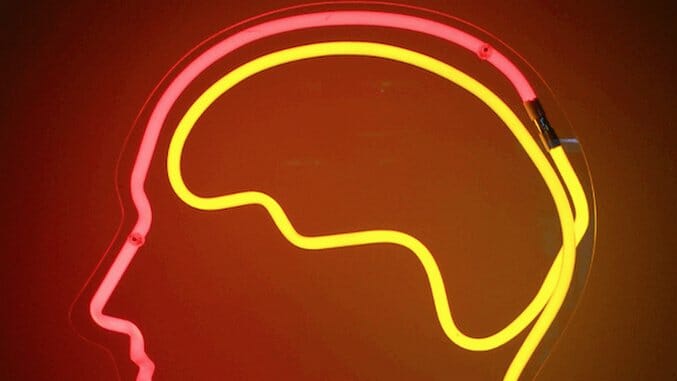The Dangers of Antipsychiatry

If you spend as much time as I do on Facebook, you’ve probably seen the meme that shows a picture of a forest with the words, “This is an antidepressant” and a picture of Prozac with the words, “This is shit.” The meme comes to us from the folks at TruthTheory.com, which “offers alternative news, documentaries and much more.” It sounds interesting at first, until you look at some of their other memes, which include 9/11 conspiracies, anti-GMO memes and a claim that the government is using Snapchat filters to create a database. Naturally the anti-Prozac meme met with a large amount of backlash, and for a good reason: claiming psychiatry is a “pseudoscience” is deadly.
But where did this idea come from? The main source is psychiatrist Thomas Szasz’s 1961 book The Myth of Mental Illness, where he argued mental illness is just a “metaphor,” and that psychiatry is no more legitimate than alchemy. The book became an instant classic, and the American Humanist Association named Szasz Humanist of the Year in 1973. And to be fair, Szasz was right about a few things, like the overuse of electroshock therapy. However, his main argument—that mental illness is just a metaphor—is just plain wrong.
A decade ago, Dr. Steven Novella of the Skeptics’ Guide to the Universe podcast debated Dr. Fred Baughman over whether or not psychiatry is a pseudoscience. According to Baughman, because mental illness has no pathology, it’s not a real thing. Novella responded to Baughman’s arguments in a five-part series on his blog, but some readers didn’t like what he had to say, including one person named Dirk. Novella finally addressed Dirk’s claims in a 2012 blog post where he explained, while Szasz did raise legitimate concerns in the 1960s, science has since given us a better understanding of mental illness. Novella writes:
Dirk begins with the “mental illness is just a metaphor” argument. This is a non sequitur. The neuroscientific model of the mind (and psychiatry is part of neuroscience) is that the mind is what the brain does. When we are talking about mental illness we are therefore talking about a brain disorder … Also, the lines between neurology and psychiatry have blurred over the years as we have learned more and more about brain function and how it relates to illnesses. Psychiatry is now more of a clinical emphasis than a distinct discipline from neurology. Psychiatry still deals with brain disorders, but focuses on those that primarily manifest as disorders of mood, thought, and behavior. These are not fundamentally different from brain disorders that manifest as abnormal movements, pain, language or cognitive problems, but those are treated by neurologists. Psychiatrists have also been steadily moving toward biological treatments of psychiatric disorders, as we learn more about their neurological causes, increasingly leaving therapy to other mental health professions, such as counselors and psychologists.
-

-

-

-

-

-

-

-

-

-

-

-

-

-

-

-

-

-

-

-

-

-

-

-

-

-

-

-

-

-

-

-

-

-

-

-

-

-

-

-








































